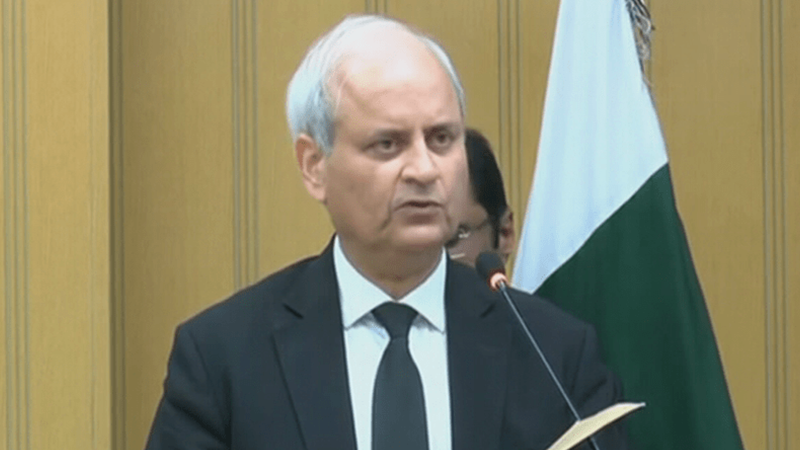Lahore High Court (LHC) Chief Justice Malik Shahzad Ahmad on Friday publicly addressed concerns over interference in judicial matters by unspecified “institutions.” Speaking at an event in Rawalpindi, Justice Ahmad emphasised his belief that such interference by the establishment will soon cease.
“I have full faith that this interference of the establishment in the judiciary will come to its end very soon,” Justice Ahmad stated. He expressed confidence based on both his faith and his professional experience, urging his colleagues to face this challenge with bravery and without fear.
The Chief Justice revealed that he has received numerous complaints — both written and verbal regarding undue influence on judicial proceedings. “We receive letters, complaints, and oral complaints that interference is being done in the judiciary in which a few institutions — naming them is not appropriate — are involved,” he said. Despite these challenges, Justice Ahmad praised the judiciary for continuing to fulfill its responsibilities with integrity and without succumbing to fear or greed.
Justice Ahmad also referenced recent allegations made by a sessions judge from the Sargodha Anti-Terrorism Court (ATC), who claimed to have faced interference from the Inter-Services Intelligence (ISI). The judge reportedly faced various forms of harassment after refusing to meet an ISI authority. “I am ready for any sacrifice that I might have to make but I would not do injustice to anyone,” Justice Ahmad quoted the ATC judge as saying, encouraging his colleagues to resist blackmail and intimidation.
In his speech, Justice Ahmad honoured former LHC Chief Justice Iftikhar Mohammad Chaudhry for his efforts against a military dictator, recalling the lawyers’ movement that led to Chaudhry’s reinstatement. He noted that Pakistan is currently experiencing one of its longest periods of civil government, a testament to the success of the 2007 lawyers’ movement in preventing further military coups.
Justice Ahmad called on lawmakers to contribute to national improvement, reminding them that positions of power are temporary. He underscored the importance of judiciary independence and the need for judges to stand firm against any attempts at manipulation.
The issue of judicial interference was further highlighted by a recent complaint from Sargodha ATC Judge Muhammad Abbas. Judge Abbas reported harassment by intelligence and law enforcement agencies, including incidents of firing outside his court and intimidation of his family. This prompted Justice Ahmad to summon Punjab Inspector General of Police (IGP) Usman Anwar and other officials for an investigation. The Punjab IG assured the LHC that an inquiry into the threats had been initiated.
Justice Ahmad’s remarks follow a troubling pattern of reported pressures on the judiciary. In March, six Islamabad High Court (IHC) judges wrote to the Supreme Judicial Council (SJC) about attempts to coerce them through abduction and torture of relatives, as well as secret surveillance of their homes. The Supreme Court subsequently took suo motu notice, with high courts providing responses and recommendations.
In his address, Justice Ahmad urged the judiciary to uphold justice without yielding to external pressures. “Temporary worries do come but you have to face them eye to eye and not be a target of any of their blackmailing. Do not be hesitant to make any kind of sacrifice,” he advised his fellow judges, reinforcing the judiciary’s role as a pillar of democracy and rule of law.
